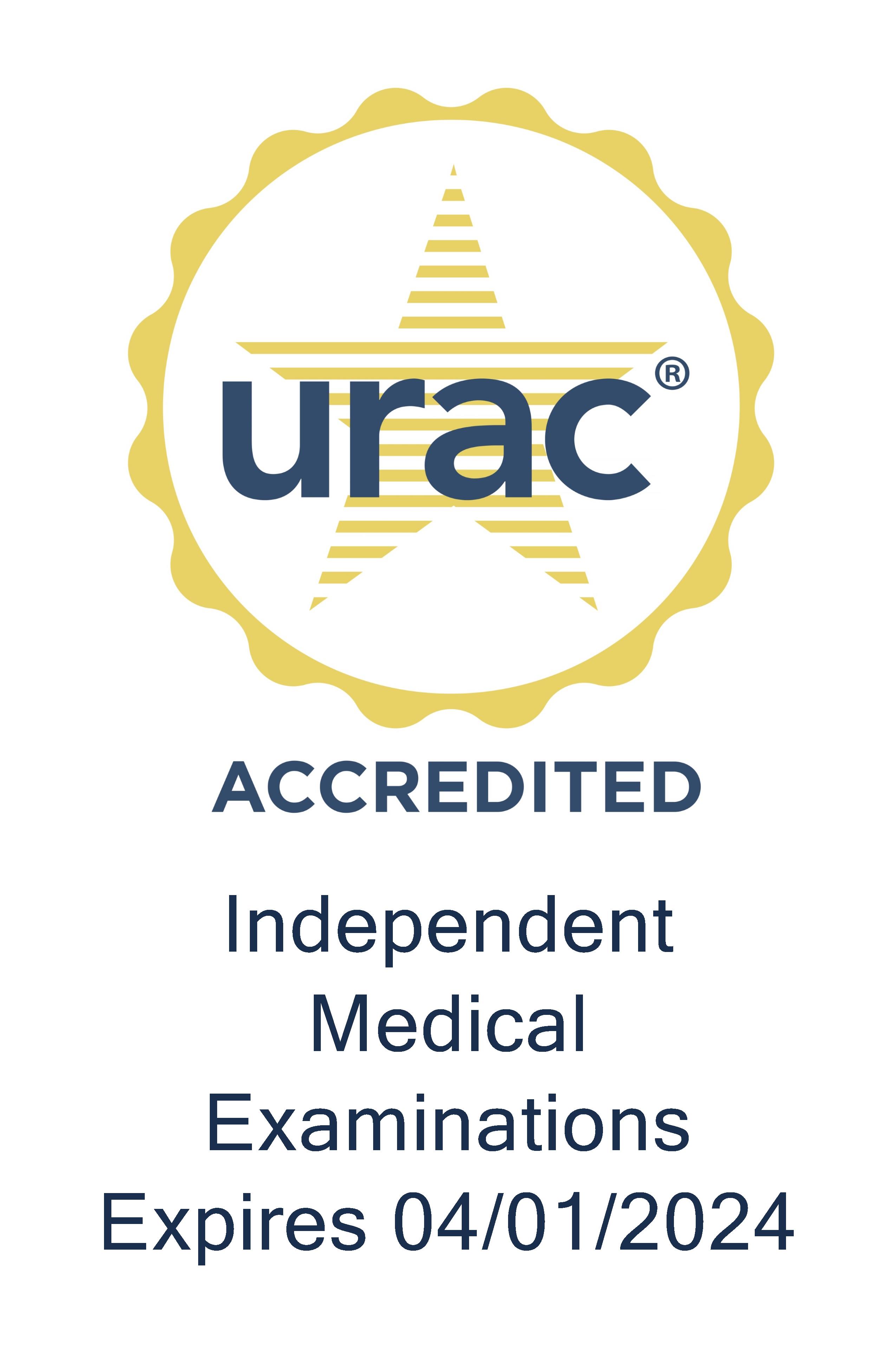Keep current with new legislation and its potential effect on your organization. This regulatory update is for informational purposes only, and provides some key highlights on state initiatives that may impact the services Genex provides.
Click here to download a PDF.
National
On March 15, the CDC published its long-awaited guidelines for opioid prescribing, a move that some say is a pivotal moment in the war on opioid abuse. The CDC guidelines are geared toward primary care providers treating patients with chronic pain not related to cancer or end-of-life care.
According to a March study by the Workers’ Compensation Research Institute (WCRI), physician-dispensing workarounds are washing reform savings away. A practice by physicians of dispensing unusual dosages of repackaged drugs to avoid price controls has spread from California and Illinois into Florida and Tennessee to the point where costs of more expensive drugs are outweighing reform savings, according to WCRI researchers.
Another recent WCRI study discussed at its annual conference in March suggests that high medical prices impact health care decision making. According to the researchers, preliminary studies show the more workers' compensation insurers pay for medical services compared to group health rates, the more likely doctors are to classify back injuries as work-related. Another study shows that after New York adopted a medical fee schedule, more New York City injured workers traveled to New Jersey for surgery, where prices are unregulated. Surgeons are possibly influencing this move by offering to schedule surgeries sooner in their New Jersey offices, researchers said. The study demonstrates that cost-shifting forces employers to pay more not only because of high fees for services, but through a greater number of claims and associated indemnity benefit costs.
The Centers for Medicare and Medicaid Services (CMS) has stepped up its efforts seeking reimbursement in cases where insurers or workers’ comp entities have primary responsibility for medical bills. Under a change that took effect Oct. 5, 2015, CMS is no longer waiting for future medical costs settlements to be decided before pursuing claim reimbursement. Instead, the agency is going after payers as soon as a party accepts ongoing medical payment responsibility.
According to a March report published by the United States Bone and Joint Initiative, an estimated 126.6 million Americans (one in two adults) are affected by a musculoskeletal condition, costing an estimated $213 billion in annual treatment, care and lost wages.
Effective April 1, the Centers for Medicare & Medicaid Services is requiring more than 800 hospitals to accept bundled payments for hip and knee replacement surgeries as part of a pilot program. Under the CMS plan, hospitals will coordinate an “episode of care” for joint-replacement patients including physicians, skilled nursing facilities and home health agencies. The episode will start with the patient's admission to the hospital and end 90 days after discharge. Whether the CMS initiative will lead to a greater acceptance of bundled payments in workers’ compensation remains to be seen.
A study by the Liberty Mutual Research Institute adds to a growing body of evidence that workers’ compensation claims result in better outcomes when an injury is reported sooner.
The National Council on Compensation Insurance (NCCI) published a new research report “Time from Injury to Treatment in Workers Compensation: Setting a Baseline to Monitor the Affordable Care Act.”. The report addresses the possibility of the ACA overwhelming the health care delivery system, making it more difficult for workers’ compensation claimants to obtain needed medical care.
Statewide
ALASKA
HB 316, which was enacted in 2014, required the Division of Workers’ Compensation to abandon the usual-and-customary approach to determining provider payments and implement resource-based relative value scale (RBRVS) by July 1, 2015. The division adopted emergency regulations to implement a new medical fee schedule which became permanent March 11. In addition to adopting Medicare's RBRVS system, the rules also establish reimbursement rates for physician-dispensed drugs and air ambulance services.
ARIZONA
WATCHLIST: The state House of Representatives unanimously approved HB 2350 that would create a presumption that post-traumatic stress disorder is an occupational injury for peace officers.
Also, the Industrial Commission of Arizona is proposing to increase surgery and radiology reimbursement rates in its Physicians' and Pharmaceutical Fee Schedule. Proposed changes would, on average, increase surgical reimbursement by 3 percent, according to a WorkCompCentral analysis. Radiology payments would also increase by a 6.75 percent average. The commission will hold a public hearing April 28 to take testimony on the proposed fee schedule changes.
CALIFORNIA
In February, the California DWC announced a new system to submit IMR applications and medical records. Applicants' attorneys can submit for independent medical review as well as medical records through an online file transfer system called MOVEit. The system is a web-based portal allowing users to securely submit files. It is the most reliable way to transmit medical records to Maximus Federal Services, the division's independent medical review provider.
Also, a recently released Rand Center report indicates that exempting certain low-cost medical procedures from utilization review in California would ease administrative burdens and speed care to injured workers. Researcher Barbara Wynn delivered the presentation during a meeting of the Commission on Health and Safety and Workers’ Compensation as part of its ongoing analysis of the impacts of Senate Bill 863, a sweeping reform measure passed in 2012.
WATCHLIST: SB 563 was unanimously approved by the Senate Labor and Industrial Relations Committee. The bill would prohibit offering financial incentives to utilization review physicians based on the number of treatment requests they modify or deny.
Also, the California Division of Workers' Compensation posted to its online forum proposed rules that would incorporate into the Medical Treatment Utilization Schedule mental illness and stress recommendations in the Official Disability Guidelines.
COLORADO
On Feb. 8, the state adopted Rule 17 – Exhibit 6: Lower Extremity Guidelines and Rule 17: Medical Treatment Guidelines, which become effective March 16. View the rules here.
CONNECTICUT
On Feb. 15, the WCC Medical Protocols for Psychological Pain Assessment and Treatment became effective. Go here to view the protocols.
IDAHO
WATCHLIST: HB 554 would create a presumption that cancer contracted by firefighters is a compensable occupational disease. The bill is on its way to Idaho’s governor after passing the state Senate last week. This creates a rebuttable presumption that if a firefighter contracts mesothelioma, leukemia, multiple myeloma, non-Hodgkin's lymphoma or cancers of the brain, bladder, kidney, testicles, esophagus or breast, the disease is a compensable consequence of employment.
ILLINOIS
WATCHLIST: SB 1805 created Insurance Code Section 155.44 which focuses on insurance companies that have ratings below A- and do not have at least $200 million in surplus. Under the new law, these companies must require collateral for policyholders who have purchased a workers' compensation insurance policy with a per-occurrence deductible of $100,000 or more. The legislation also requires insurers to report the outstanding obligations owed under the deductible as liabilities, unless the deductible amounts are fully collateralized. The Insurance Department included the drafting of rules to implement the act in its Regulatory Agenda for 2016.
LOUISIANA
WATCHLIST: HB 725 was referred to the Committee on Labor and Industrial Relations. This bill would require prescriptions be based on the official disability guidelines (ODG) published by the Work Loss Data Institute. A voluntary drug formulary based on ODG became effective Feb. 28.
Other Louisiana legislative initiatives have been proposed but are expected to meet some regulatory challenges by regulatory stakeholders. These include:
- HB 345, which provides for workers’ compensation record confidentiality except to third-party entities, law enforcement, and others providing insurance support organizational services for workers’ compensation compliance, monitoring, reporting and fraud identification.
- HB 280, which relates to group self-insurance funds for workers’ compensation.
- SB 266, which addresses claims adjuster licensing. This bill would repeal a law allowing adjusters whose licenses have expired to obtain a new license by fulfilling continuing education requirements. Under SB 266, adjusters whose licenses have expired for two years or more would be required to apply for a new license. The bill would repeal a statute that now exempts workers' compensation claims adjusters from state licensing requirements, effective Aug. 1, 2017. The proposed law, however, would allow the state insurance commissioner to waive the licensing requirement for adjusters with three years of verifiable workers' comp claims experience within the preceding five years if they apply for the waiver before Aug. 1, 2017.
MASSACHUSETTS
Gov. Charlie Baker signed Bill H.4056 into law March 14, which addresses the deadly opioid and heroin epidemic plaguing the commonwealth. The legislation passed with unanimous votes in both legislative chambers. It includes numerous recommendations from the governor’s opioid working group, including prevention education for students and doctors. It also is the first law in the nation to establish a seven day limit on first-time opioid prescriptions.
NEBRASKA
WATCHLIST: LB1005 would direct the Nebraska Workers’ Compensation Court to develop a drug formulary for use in the workers’ compensation system. The formulary would include controlled substances or drugs listed in Schedules II, III, IV, and V of NRS 28-405. The legislation also outlines a framework for preauthorizing medications not included in the formulary.
NEW MEXICO
Gov. Susana Martinez signed into law SB 214 which reduces workers’ compensation benefits for employees who injure themselves on the job while under the influence of alcohol or narcotics.
WATCHLIST: HB195 would provide that a workers' compensation carrier or an employer providing workers' compensation benefits not be required to pay a reimbursement claim for medical marijuana.
New Mexico lawmakers could have a chance this year to abrogate a series of court decisions that put state employers in the unique position of having to reimburse injured workers for medical marijuana. HB195 would amend three existing laws by adding language saying a carrier or employer can't be required to pay for costs associated with the purchase or use of medical cannabis.
NORTH DAKOTA
Workers with back problems will now have to complete new pain and surgery expectation questionnaire forms from Workforce Safety & Insurance (WSI) when requesting prior authorization for lumbar fusion surgery. According to WSI, the new forms will enhance the review process for the surgery, which fuses two or more vertebrae in the low back. Providers can access the forms under the medical treatment guidelines, which recommend the surgery should not be performed on workers’ compensation patients with degenerative disc disease, disc herniation, spinal stenosis without degenerative spondylolisthesis or instability, or nonspecific low back pain, due to lack of evidence or risk exceeding benefit. WSI said the provider is responsible for supplying and assisting patients with completing the forms and submitting them along with the utilization review request.
OKLAHOMA
A unanimous Oklahoma Workers' Compensation Commission declared the state's fledgling opt-out program to be unconstitutional on Feb. 26. The commission ruled the program subjects workers to differential treatment depending on whether their employers are subject to the Oklahoma Employee Injury Benefit Act or the Administrative Workers' Compensation Act. Passed in 2013, the opt-out legislation gave employers the option to leave the state workers' comp system if they purchased alternative benefit plans for their employees that provided "the same forms of benefits” that are "at least equal to or greater than the dollar, percentage and duration limits contained in the regular comp system."
As opt-out proponents gear up for a constitutional battle in Oklahoma, a lawsuit filed by the U.S. Department of Labor challenging policies that require workers to immediately report injuries could become the next obstacle in the push for alternative methods to cover occupational injuries. In the suit filed with the U.S. District Court for Delaware the DOL contends that U.S. Steel Corp.’s policy requiring immediate reporting of injuries violates OSHA and record-keeping rules.
PENNSYLVANIA
Loss costs for Pennsylvania workers' compensation rates dropped an average of 0.9% on April 1, due in part to legislative action designed to rein in repackaged drug costs. The Pennsylvania Compensation Rating Bureau (PCRB) recommended that change on Dec. 8, along with housekeeping revisions to the PCRB Manual of Rules, Classifications and Rating Values. The initiative capped reimbursement for repackaged drugs at 110 percent of the average wholesale price based on the National Drug Code of the original manufacturer. PCRB estimated that the legislation reduced medical costs by 1.32 percent.
WATCHLIST: HB 1800 would require the Department of Labor & Industry to adopt nationally-recognized evidence-based treatment guidelines. The General Assembly's House Labor and Industry Committee held a public hearing on the bill March 17.
Tennessee
The Tennessee Department of Labor’s Bureau of Workers’ Compensation has adopted the Work Loss Data Institute ODG Drug Formulary (Appendix A) for its workers’ compensation system. The department has set the following dates for the changes to occur:
- For first prescriptions written and dispensed for the affected medications after 1, the drug formulary will apply after Aug. 28.
- For refills of medications with prescriptions written before 1, the drug formulary will apply after Feb. 28, 2017.
Tennessee has become the fifth state to adopt a drug formulary.
TEXAS
The Texas Department of Insurance, Division of Workers’ Compensation (DWC) recently announced it is providing a grace period for employers without workers’ compensation insurance coverage or who terminated coverage (non-subscribers) to report their non-coverage status to DWC without penalty. This grace period also extends to non-subscribers with five or more employees who have not previously reported on-the-job injuries, illnesses, and fatalities. DWC is offering this grace period to increase compliance with required state reporting. Additional information on non-subscriber reporting requirements is available on the TDI website
VIRGINIA
HB 378 was signed into law by Gov. Terry McAuliffe. This legislation sets fee schedules and employers’ maximum liabilities for workers’ compensation claims. The new fee schedules will become effective Jan. 1, 2018. Reimbursements for medical services for traumatic injuries and serious burns are excluded from the fee schedules and liability for their treatment costs, which will be based, absent a contract, on 80 percent of the provider's charges.






